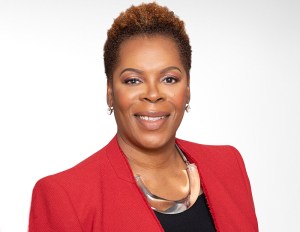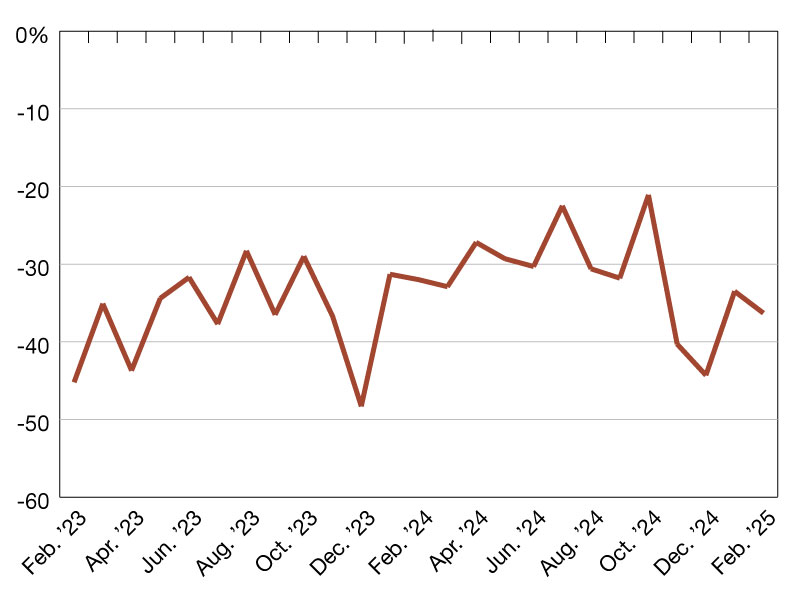Cushman & Wakefield’s Nadine Augusta Charts a New Path for DEI
As CPE observes Black History Month, we talk to the company’s first-ever Chief Diversity, Equity & Inclusion Officer about her mission.
Some of the most important commercial real estate players have taken notable steps toward addressing the challenges faced by historically underrepresented groups through the creation of executive positions within their organization.
In December 2020, Cushman & Wakefield welcomed Nadine Augusta as the company’s first chief diversity, equity and inclusion officer. Augusta has more than two decades of experience in financial services, with key positions in management consulting, project management, sales and trading, as well as equity and inclusion. Prior to this role, she led talent engagement and DEI efforts at Goldman Sachs.
Augusta talked to Commercial Property Executive about her experience at Cushman & Wakefield so far, expanded on her top goals for the company, and explained why executive positions such as hers are important in the commercial real estate industry.
READ ALSO: CBRE’s Tim Dismond on Doing the Work in ESG
Tell us about your role at Cushman & Wakefield.
Augusta: As I reflect on my first year as chief diversity, equity and inclusion officer at Cushman & Wakefield, I am energized by the commitment and the passion I have seen across the company for the advancement of diversity, equity and inclusion. I have never felt more welcomed in an organization.
As CDEIO, I drive our global DEI strategy as a firmwide, top priority. Cushman & Wakefield was intentional in ensuring that this role had a seat at the highest leadership table in the company. I’m a member of the global management team and I report to the chief operating officer, and frequently collaborate with our CEO, chief people officer and other senior leaders across the organization.
What were your first actions at Cushman & Wakefield?
Augusta: As the company’s first-ever CDEIO, I spent my first few months at Cushman & Wakefield learning about the company, our business and meeting senior leaders and employees at all levels of the organization. I issued a DEI survey to gather input and feedback from all employees to help us to understand what the biggest opportunities and challenges were from a DEI perspective. I poured into the data to lay the groundwork for our current global strategy.
During my first year, I built a completely new DEI function, including hiring new team members. A dedicated DEI team provides the necessary infrastructure to guide our efforts, particularly in the areas of DEI governance, supplier diversity and business development. I believe we have the right team members with key skillsets and experience to partner across the organization to drive change.
What are your top goals?
Augusta: As CDEIO, my goal is to build the most diverse, equitable and inclusive commercial real estate company that continuously delivers what’s next for our people, clients and shareholders.
Our holistic global DEI strategy focuses on the workforce, workplace and marketplace. Two of the firm’s key focus areas include recruiting and talent development. By continuing to develop, nurture and empower our people, we believe they will be able to do their best work. We want to create a unified culture—one that is supported and reinforced by inclusive policies and business practices. Our talent strategy focuses on recruiting and retaining historically underrepresented talent at all levels of the company.
Another key area of focus for us is supplier diversity. Through our Supplier Diversity Program, we identify opportunities to engage and partner with diverse suppliers such as minority, women, veterans, LGBTQ+ and disability-certified businesses. We support economic development and drive greater equity and inclusion in the communities we serve by putting into practice organizational efforts that create a more diverse and inclusive supply chain.
Our goal is to harness DEI to deliver better results for our clients and enforce greater inclusion of diverse businesses.
Share a few thoughts on the impact of the health crisis on real estate companies’ DEI strategies.
Augusta: When I think about how the current health crisis relates to DEI, I think the situation has shined a light on persisting inequities—whether that is the ability to secure needed health care or whether working from home is an option. I think what the pandemic has reinforced for companies is that they cannot address only the business activities of their employees. Companies need to address and respond to the challenges their employees and historically underrepresented groups are facing outside of the office that impact their day-to-day.
For example, during the aftermath of the murder of George Floyd in the U.S. and other acts of violence toward the Asian American and Pacific Islander community, we made sure that our employees received the support they needed through our Employee Resource Groups and our Employee Assistance Program. We continue to support employees impacted by COVID-19 and facing unforeseen financial or personal hardship through our Global Employee Assistance Fund. These funds help employees cover medical costs, pay for essential needs—food, rent and utilities—and care for themselves and their families during times of crisis. Since launching the fund, over 5,000 grants have been distributed to employees in over 20 countries as of June 2021.
READ ALSO: At ULI Spring, CRE Leaders Chart a Course for Diversity, Equity and Inclusion
What are the most valuable lessons you have learned throughout your career? How have your previous professional experiences prepared you for your role at Cushman & Wakefield?
Augusta: Having worked more than 20 years in the banking and financial services industries and spending about 13 years in DEI leadership roles, I believe that I bring critical expertise and perspective to the commercial real estate industry. I have a proven track record of driving diversity programs in large organizations.
One of the most valuable lessons I’ve learned is to trust my instincts. It can be easy to second guess yourself when needing to make decisions quickly. Over the years, I have learned that my intuition or inner voice is a feeling resulting from a link between my mind, heart and gut, and are guided by past knowledge and experiences. Trusting my intuition is ultimately trusting myself.
Early in my career, I worked at a company I was very excited to be part of. I was learning a lot, building relationships with my colleagues and was really excited about my career path. But there was one thing that stuck with me, and that was that senior leaders rarely spoke to the more junior staff. I felt invisible.
As I moved through my career, I have made it a point to get to know colleagues at all levels of the organization and I have found that I get the best insights, information and questions from employees at the more junior levels. Today as a CDEIO, I have the language to apply to what I was experiencing early in my career and I take pride in being internally inclusive with how I operate.
What are some DEI projects at Cushman & Wakefield that other companies in the commercial real estate sector could take as example?
Augusta: Cushman & Wakefield is committed to engaging with minority-owned businesses wherever possible. In 2021, Cushman & Wakefield spent over $536 million with 3,185 diverse suppliers in North America. We recently launched a Supplier Registration Portal, which allows suppliers to enter their information to be considered for future opportunities and gives us the ability to refer new suppliers and ensure diverse suppliers are properly certified. I strongly encourage others in the CRE industry to look creatively at how DEI can be applied to each area of their business, beyond talent management.
Is there any advice you can offer to smaller CRE companies that want to improve their DEI strategy?
Augusta: I strongly believe that DEI is everyone’s responsibility. One of the misconceptions in this work is that when you hire a chief diversity officer, it is really their responsibility to get the work done. In practice, this work requires everyone, and not just those in positions to hire or make business decisions within the organization. Of course, they are essential in driving change but for true change to occur, it requires every single employee, regardless of their position within the organization, to be engaged, committed and to take action.
To create sustainable progress, I would encourage CRE companies of all sizes to think creatively about ways to leverage the full ecosystem of the organization to work together to enable systemic progress.
Please tell us about the biggest DEI changes you hope to see in the real estate industry this year. When it comes to DEI, where do you think the real estate industry has the most room for growth?
Augusta: When we look at the CRE industry as a whole, it is no surprise that we have a challenge when it comes to DEI. Thanks to a 2020 study by CREW Network we know that the commercial real estate industry is made up of 36 percent women. Cushman & Wakefield leads the industry on representation of women in our firm: Women comprise 39 percent of our total workforce, with 40 percent of our new hires in 2020 being women. Additionally, 42 percent of our people managers globally are women, and our board of directors is comprised of 40 percent women as well. That said, we know that we have more work to do.
At Cushman & Wakefield, we maintain several key industry partnerships to expand and diversify our networks and share best practices:
- National Minority Supplier Diversity Council
- Women’s Business Enterprise National Council
- National LGBT Chamber of Commerce
- We Connect
- U.S. Pan Asian American Chamber of Commerce
- Commercial Real Estate Women Network
- The Real Estate Associate Program
- African American Real Estate Professionals
This challenge isn’t unique to CRE or any one firm within the industry, but CRE is far behind industries like banking and finance, whose programs are more mature due to a prolonged focus and sustained efforts over time.
While data on racial and ethnic diversity in CRE is limited, we know representation is low, especially in the mid- to senior-level roles. There is a great opportunity to create change and learn from trailblazers to forge our own path.








You must be logged in to post a comment.